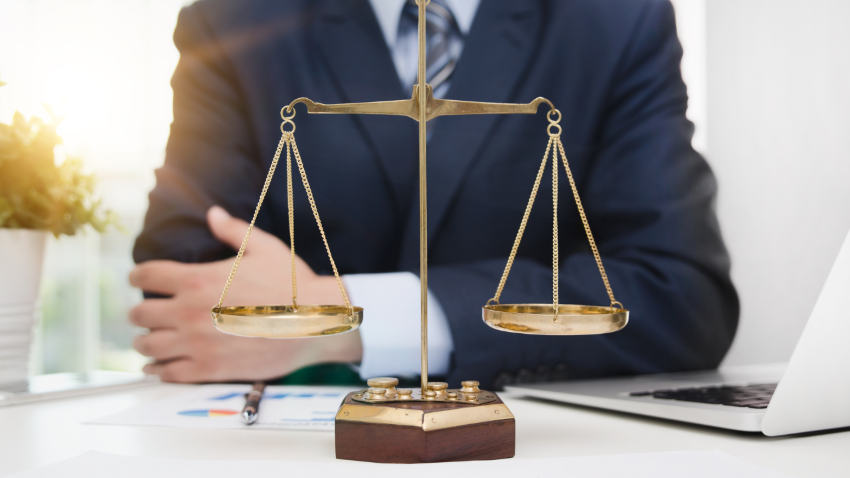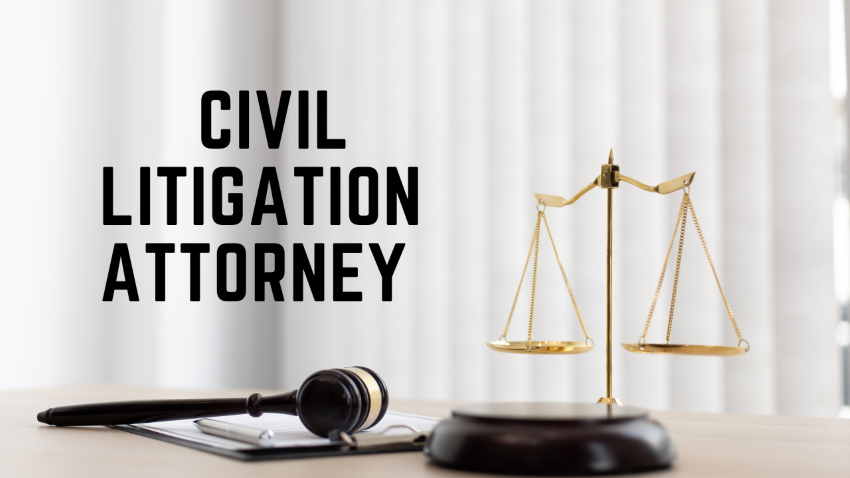Are you looking for a civil litigation attorney? As we know, Civil litigation is a complicated legal arena in which individuals, businesses, and organizations compete to resolve conflicts. In this judicial arena, anarchy frequently reigns supreme, with emotions running high and stakes skyrocketing.
Civil litigation attorney is the hidden heroes who navigate this maelstrom on behalf of their clients, seeking justice and triumph. Today, we will look at the path from chaos to success and how a smart civil litigation attorney can tip the scales in favor of their client.
The Chaos of Civil Litigation Attorney
There’s a lot of chaos and stress in the realm of civil action. This part focuses on the difficulties and nuances that attorneys and their guests deal with.
Multifaceted controversies
A broad diapason of conflicts, including those involving physical damage, business controversies, job enterprises, and family difficulties, are covered by civil action. Every case has its unique complexity and complications.
Emotional Rollercoaster
guests frequently go through a range of feelings on an emotional rollercoaster, from anxiety and query to rage and frustration. During this emotional storm, their attorney serves as a confidante and counsel for them.
Legal Procedures and Timelines
It can be bogarting for guests to navigate the maze of court regulations, deadlines, and legal procedures. Their case may be compromised if they file the incorrect document or miss an important deadline.
Role of a Civil Litigation Attorney

The vital role of civil litigation attorney is explored in this section, along with how they can offer order and strategy when things are chaotic.
Legal Expertise
An experienced lawyer brings a thorough knowledge of the law to the table. They provide strong justifications and defenses for their clients by interpreting and applying the law to the matter.
Case Analysis and Strategy
After carefully examining the matter, a civil litigation attorney determines its advantages and disadvantages and develops a winning plan of action. They evaluate plausible legal theories, witnesses, and the available evidence.
Legal Advocacy
A lawyer represents their client’s interests in court. They expertly put up their client’s case, cross-examine witnesses, and make precise legal arguments.
Gathering Evidence and Building a Strong Case
The significance of assembling evidence and erecting a solid case for civil action is bandied in this section.
Investigative Chops
An effective counsel uses disquisition ways to find substantiation, speak with substantiations, and contact specialists as demanded. They do not spare any detail when constructing a strong argument.
Document Management
One of the main factors of civil action is handling a large volume of attestation. Attorneys ensure that all material attestation is readily available and well-organized.
Expert substantiations
Expert substantiation evidence can add specific moxie and perceptivity to a case, which is why attorneys may call upon them in complex matters.
Negotiation and Alternative Dispute Resolution

The significance of alternative dispute resolution procedures and negotiation in civil litigation is examined in this section.
Negotiation Skills
Not every civil case ends in a trial. An adept lawyer is adept at successfully negotiating settlements and agreements that are advantageous to their clients.
Mediation and Arbitration
Clients can settle issues more quickly and amicably by using alternative dispute resolution procedures like mediation and arbitration. Lawyers can assist their clients with these procedures.
Preparing for Trial
Guests can settle issues more snappily and amicably by using indispensable disagreement resolution procedures like agreement and arbitration. attorneys can help their guests with these procedures.
Mock Trials and Exercise
A counsel’s practice sessions and dissembled trials are meant to make sure their guests are prepared for trial. guests profit from a bettered performance on the stage and a more affable courtroom atmosphere as a result.
Trial Strategy
A thorough trial plan is developed by attorneys, which includes jury selection, substantiation donation, and strong arguing. In the courtroom, this tactic is essential for success.
Courtroom Battle
This part provides readers with an inside look into a civil litigation trial, emphasizing the drama and intensity of the proceedings.
Courtroom Etiquette
Attorneys must maintain proper courtroom behavior and make sure their clients do the same. It is crucial to show respect for the jury, judge, and opposing attorneys.
Presentation and Argument
Legal professionals present a strong argument for their clients in court. Along with offering compelling opening and closing arguments, they also cross-examine witnesses and present proof.
Post-Trial and Appeal
A trial doesn’t always mean the end of the passage. This section addresses the eventuality of an appeal as well as the post-trial period.
Verdict and Judgement
Attorneys prop their guests in comprehending the result and any court-issued judgments following the trial.
Appeal Process
An attorney can help a customer who’s unhappy with the verdict of the trial by filing an appeal to have the judgment reversed or modified.
Celebrating Victory
The celebration of achievement and the part that civil litigation attorney play in assisting their clients in reaching their goals are the topics of this section’s conclusion.
A Just Outcome
Getting a fair result for their client is the ultimate objective of a civil litigation lawyer. Closure and validation might result from a legal triumph.
Client Civil Litigation Attorney Appreciation
A strong rapport based on mutual respect and success is frequently formed when prosperous customers thank their lawyer for his or her commitment and diligence.
Evolving Landscape of Civil Litigation Attorney

Civil litigation attorney is a dynamic field that changes in reaction to shifts in the legal system, society, and technology. This section will discuss how civil litigation is changing and how lawyers involved in civil litigation are adjusting to these developments.
Technology and E-Discovery
Technological developments have revolutionized the way that evidence is gathered and presented, with electronic discovery being a key component. To effectively represent their clients in civil litigation, attorneys must stay up to date on technology and e-discovery techniques.
Online ADR
Online conflict resolution has allowed for the increased accessibility and effectiveness of alternative dispute resolution (ADR) techniques including mediation and arbitration. Lawyers for civil litigation are adjusting to this shift toward digital technology.
Wrap Up
A civil litigation attorney serves as a customer’s compass during the tumultuous trip from chaos to palm in a civil action. These attorneys can turn the tables in their guests’ favor and bring justice and resolution to indeed the most contentious legal situations through their legal moxie, strategic thinking, and loyal fidelity.

